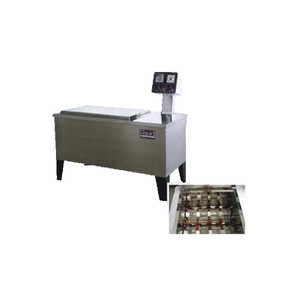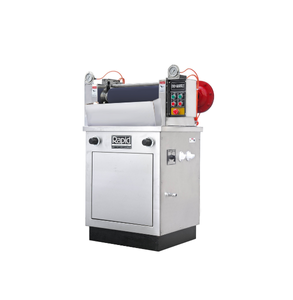Eco Dyer Eco-18
Eco Dyer with a 18x420 cc tube capacity is a new type of laboratory sample dyeing machine, produced with the latest technology that offers excellent homogenous heat transfer, rotary drum design, complete stainless steel construction, and the best compatibility with laboratory and operational needs. It is the most preferred by textile dyeing, chemical, and R&D laboratories. The tubes embedded in the stainless steel rotary drum with a 18x420cc tube capacity rotate 360 degrees, ensuring continuous movement of the bath inside the tube. This results in the best compatibility with laboratory and operational needs, providing accurate results even with a low float ratio.
Key Features:
- Complete stainless steel body
- Improved heat transfer system
- Dosage system that eliminates abrasion
- Low energy consumption
- Independent sensors from the tubes and unique algorithm calculations
- Working temperature measurement
- Ready for use
- User-friendly
- Modern laboratories built with Eco Dyer
- Simple and easy operation
- 316L stainless steel dyeing tubes
- Even dyeing
- Unique chemical addition system design
Tube and Cap Types:
- Eco Dyer laboratory sample dyeing machine has 316L stainless steel tubes with a non-staining, long-lasting, press-molded structure, free from welds. It allows the use of all cap types (Injectable cap, HT cap, Syringe cap) with a single tube.
- With the long-lasting special seal used in the HT cap, there is no need for acetone in the laboratory. Additionally, it eliminates the need for tube and cap washing, which often leads to significant time loss during transitions in your RAM operations.
Eco Dyer sample dyeing machine, with its one-touch injection system, ensures the chemical addition process in laboratory work is more effective, faster, and practical. The chemical addition system is applied in a way that is more similar to the operational process, reducing all factors that could cause abrasion, such as temperature fluctuations and chemical collisions, to zero. As a result, accurate dosing occurs gradually.





